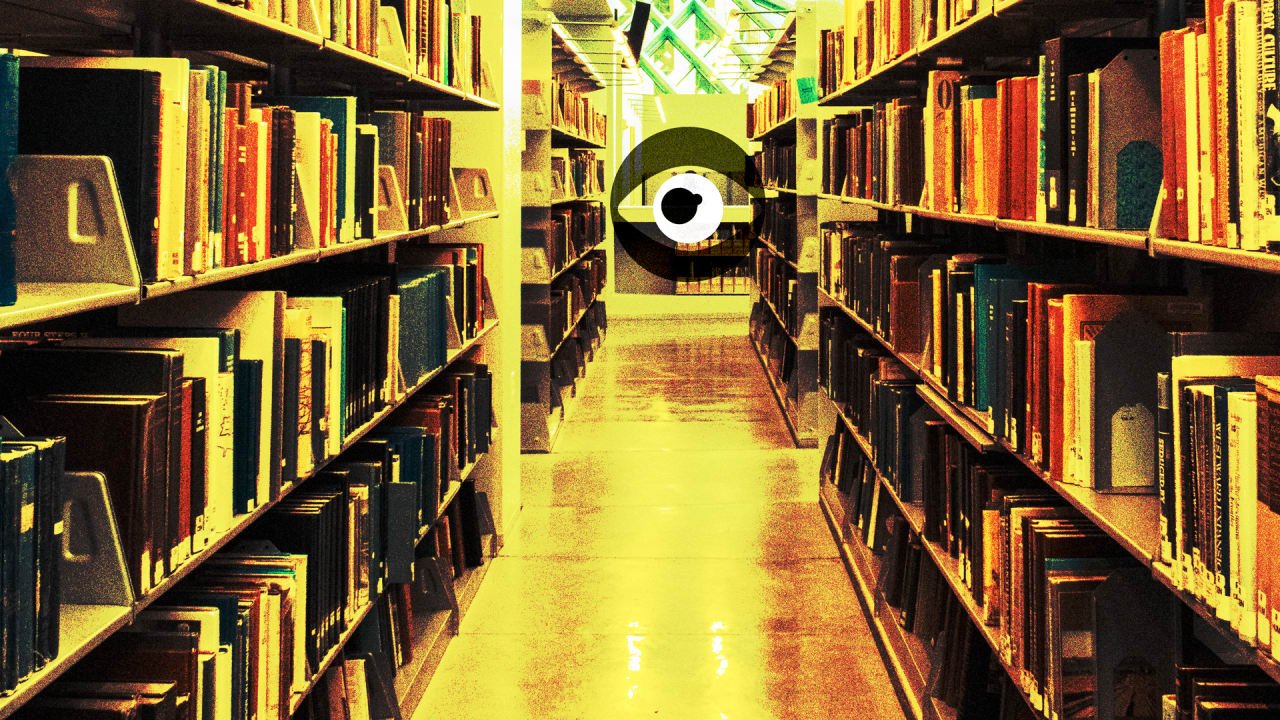[ad_1]

Amid the inflection point of library digitization, publishing corporations want to reduce and redefine the role that libraries play in our society. Their suit seeks to halt loans of legally purchased and scanned books, cementing a future of extortionate and opaque licensing agreements and Netflix-like platforms to replace library cards with credit cards. If successful, they will erode the public’s last great venue to access information free from corporate or government surveillance. This dire threat to the privacy and safety of readers has gone largely unnoticed.
Big Tech monopolies like Amazon and its Kindle e-reader shamelessly collect and store data on readers. They do this in order to exploit readers’ interests and habits for advertising and to gain an advantage in the market—but that same data can be shared with law enforcement or bounty hunters to prosecute people exploring topics such as abortion or gender affirming healthcare. Libraries, on the other hand, have a centuries-old practice of vigorously defending the privacy of their readers. Even the Oklahoma library system that recently threatened librarians if they so much as “use the word abortion” is still doubling down on providing better anonymity for patrons. The function of a library is antithetical to the prerogatives of surveillance capitalism.
Today, libraries generally are blocked from purchasing and owning digital books—and readers are in a similar boat. Instead, publishers offer only high-cost licenses for which libraries rely on emergency funds and may only be able to afford the most popular works. These costs put libraries at a disadvantage in serving traditionally marginalized communities, including particularly young, disabled, rural, and low income readers who may rely on e-books. Already, public schools bound by state law to protect the data of their students are having to pay $27 per digital copy of Anne Frank’s Diary of A Young Girl each year. Publishers are sending a clear message that privacy will be a premium feature if they have their way.
This lawsuit is a digital book burning to end libraries’ most viable avenue to loan and preserve diverse, surveillance-free digital books: scanning the books themselves. If libraries do not own or control the systems for accessing digital books, or can only afford digital books with a “let our corporation surveil your patrons” discount, people who rely on digital books from libraries are much more likely to be surveilled than those privileged enough to travel to check out a paper book.
But it is not only readers whose opportunities are on the chopping block. If publishers are able to charge more money for a smaller list of books, authors will be in a more dire position for publishing opportunities, making an already exclusive and white industry even less hospitable for diverse and emerging authors. To be published at all, even more authors will be forced to turn to Amazon’s extractive self-publishing e-book and audiobook monopoly. To access those books, readers already have to pay both in dollars and in data.
Surveillance endangers traditionally marginalized people the most, and publishing urgently needs to confront this blind spot. The authors listed in the suit appear to be about 90% white, 60% male, and 17% deceased. While it would be ludicrous to blame deceased authors for not speaking out, the others have been resoundingly complicit: allowing publishing companies, associations, and other institutions to outrageously claim that the existence of libraries in the digital age harms their intellectual property and smear librarians as “mouthpieces” for Big Tech.
Authors listed in the suit include James S. A. Corey, best known for The Expanse, A Game of Thrones’ George R.R. Martin, Gillian Flynn of Gone Girl fame, and Elizabeth Gilbert of Eat, Pray, Love. Brene Brown’s Daring Greatly as well as multiple titles by Lemony Snicket are also listed. Sarah Crossan’s YA novel Resist, and Emily St. John Mandel’s Station Eleven are also among titles the Internet Archive is being sued for owning and loaning. Ironically, Malcolm Gladwell’s David & Goliath is also among publishing giants’ arsenal.
This lawsuit illustrates a new level of unabashed greed from publishing corporations and their shareholders, swathed in a record-profits-fueled PR campaign using inadequately compensated authors as human shields. Not only will the outcome shape access to knowledge, information, culture, and community for readers and authors alike—it will determine the safety of readers who seek information that may be banned or criminalized where they live.
No one should ever be arrested for reading a book. If publishing companies truly had the best interests of our society at heart, they would engage in good faith to help libraries own and preserve digital books in a way that is fair to authors and that puts the safety of readers first.
Lia Holland is the campaigns and communications director at Fight for the Future. Jordyn Paul-Slater is a communications and privacy intern at Fight for the Future.
[ad_2]
Source link

